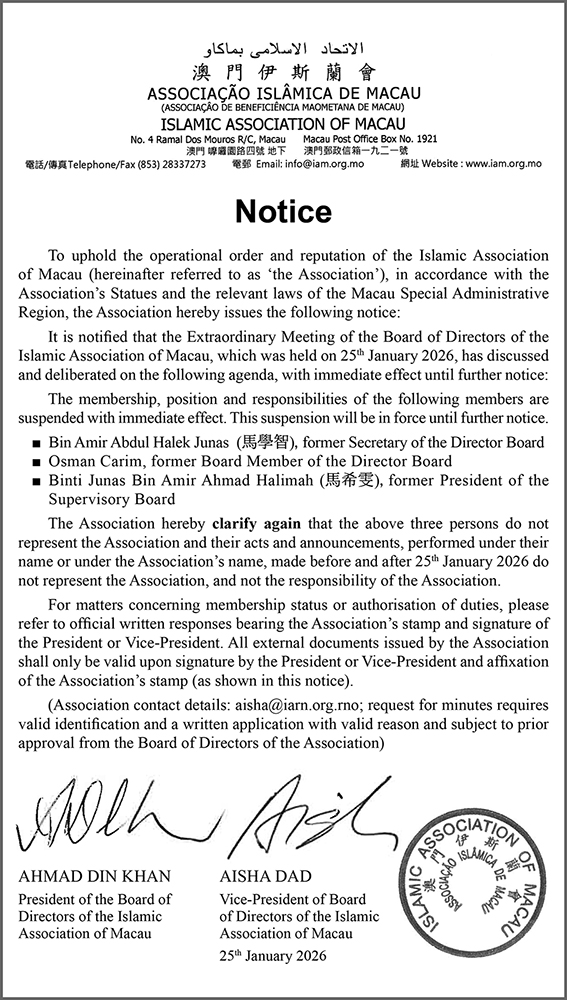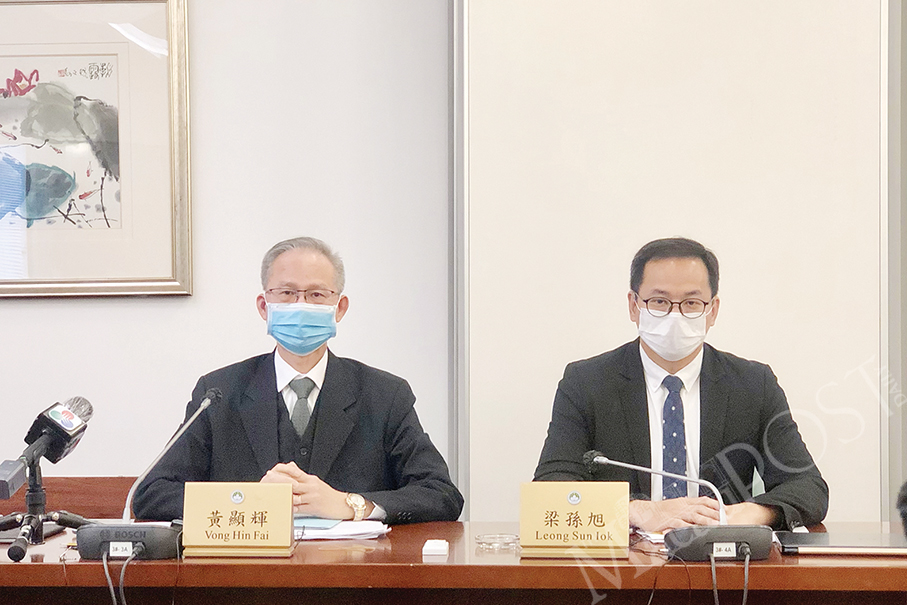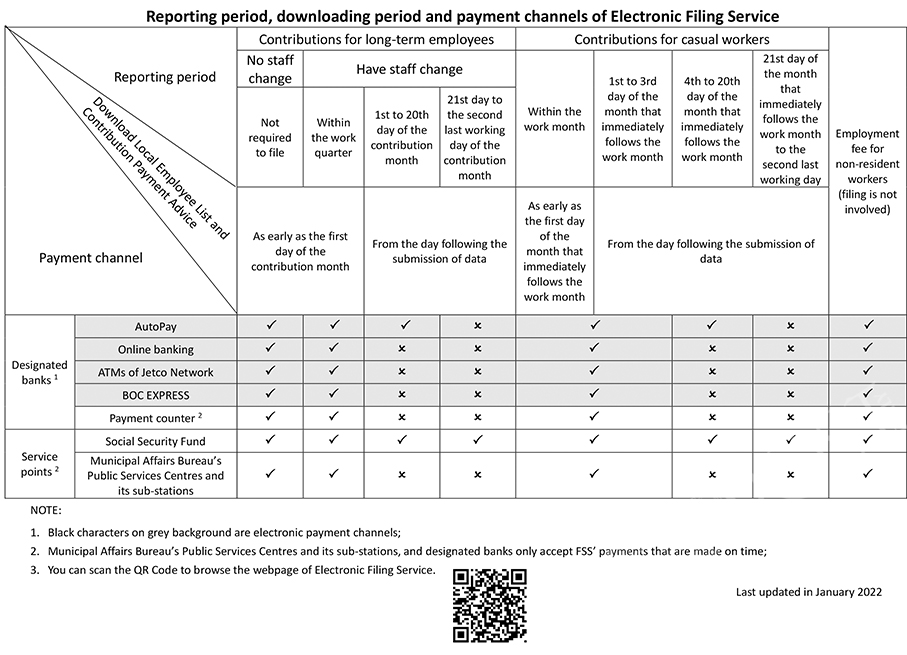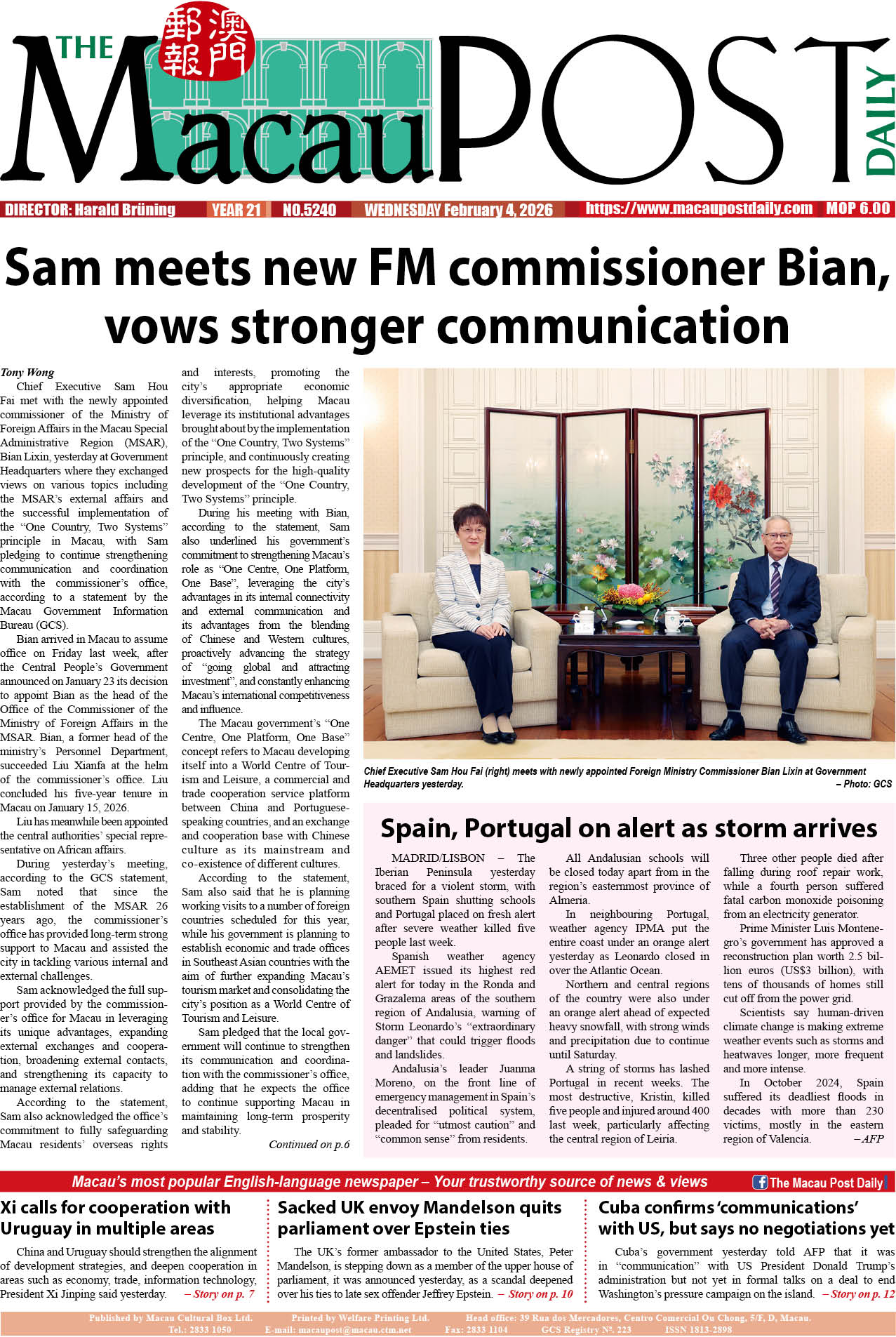The Macau government is ready to offer casino operators a financial incentive for attracting more overseas gamblers, veteran lawmaker Andrew Chan Chak Mo has revealed.
Chan made the surprising revelation after a closed-door meeting of a standing committee of the local legislature with government officials yesterday about the ongoing revision of a government-drafted amendment bill on reshaping the local gaming industry. Chan chairs the committee.
Chan, a restaurateur by profession, quoted the government officials as saying that in the future the government was prepared to exempt casino operators from paying up to five percent of a levy on their gross gaming revenues for attracting more gamblers from overseas to their gaming tables.
Chan stressed that the government's direct gaming tax rate of 35 percent on gaming operators' gross gaming revenues would, however, remain intact.
Currently, apart from the 35 percent direct gaming tax rate, the operators pay five percent of their gross gaming revenues into the public coffers as an additional levy for social, cultural and other public causes, including two percent earmarked for the public Macau Foundation (FM).
Analysts have pointed out that even before the COVID-19 pandemic started to impact the local gaming industry in early 2020, over 90 percent of local casinos' gamblers came from the Chinese mainland, Hong Kong and Taiwan.
Chan said that according to the revised version of the amendment bill presented to the committee by the government yesterday, the chief executive of the Macau Special Administrative Region (MSAR) may grant casino operators a total or partial waiver of the up to 5 percent levy (known as "contribution" in local legalese) as an incentive to attract more overseas gamblers.
Govt tweaks 'satellite casino' rules
Meanwhile, according to Chan, the revised version of the bill would allow the continuation of gaming operators' so-called "satellite casinos" run by third parties on real-estate not owned by the operators.
The previous version of the bill would have required all the "satellite casinos" to be located on real-estate owned by the respective gaming operator. Currently, this is not necessarily the case.
The updated version of the bill, according to Chan, states that a "satellite casino" will have to be run by a "management company" on behalf of the respective gaming operator. The management companies will no longer be allowed to share the revenues of the "satellite casinos" revenues the respective gaming operators. Instead, the latter will pay the former a management fee, Chan said.
According to local media reports, the number of "satellite casinos" owned by gaming operators but run by third parties - junkets in particular - ranges between 18 and 22.
Secretary for Economy and Finance Lei Wai Nong attended yesterday's meeting but did not speak to the media afterwards.
Chan told reporters during yesterday's usual media briefing after a meeting of the committee that its members aimed to complete the bill's revision in the middle of next month so that a plenary session of the legislature could vote on the bill's final version before or on June 26, when Macau's three gaming concessions and three sub-concessions will expire.
Earlier this year, however, the government provisionally extended the concessions and sub-concessions until the end of the year, apparently in order to gain more time for the new bidding process.
According to the amendment bill, the government will grant up to six concessions in the future. Sub-concessions will no longer be allowed.









